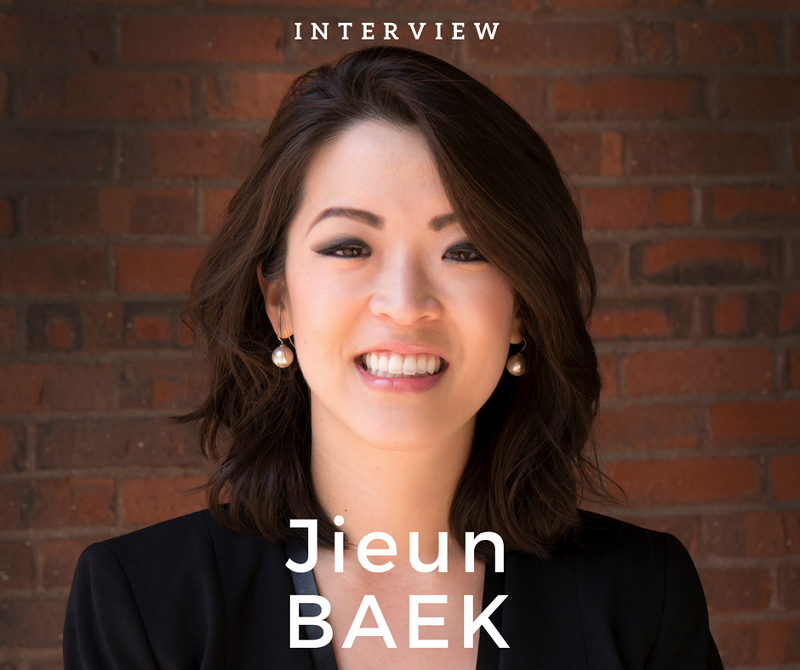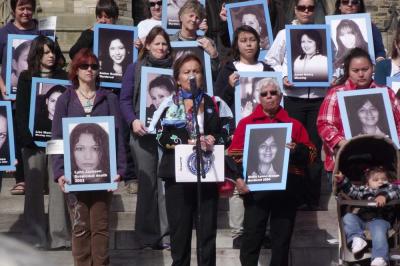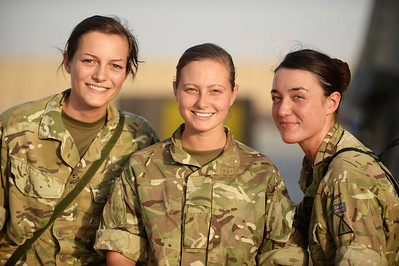Read Part I here, in which I ask Jieun about her research about information access in and out of North Korea.
Part II: About JiEun’s Career
Can you tell me a bit more about your position at Google headquarters and your work on information access projects for North Korean defectors?
I was in sales department, completely irrelevant to North Korea or politics. Also, I worked with Google ideas, now called Jigsaw, based in New York. I handled the North Korea portfolio. One of the projects was to work with North Korean defectors on various communication access projects, information security, [and] media. I did those at the same time.
M: Did it end up in some actions towards North Korea?
Sure. In order to not break sanctions […] I wanted to make sure I was working with defectors since they are legally citizens of South Korea. A lot of it was giving them toolkits, trainings, in a very one-to-one way. They came to the Google Office in South Korea, we did a lot of video interviews, video sessions, where they can then take those tools to search safely, or how to use internet, how to compose a search query, so that they can [use these skills] to do whatever they want to do. Whether it was teaching internet security, [or even] how to buy USB keys cheaper so they can perhaps send them to North Korea. It was a very indirect method.
M: Such indirect action is still one of the most proficient ways of doing it, right? Since it is so hard to do it bluntly.
[…] Indeed. I think defectors […] are often used as props for events, or really just dismissed as these exaggerating victims. That’s usually not the case in reality. Some of the smartest people and hardest working people I have ever met in my life have defected from North Korea. I don’t understand why people keep on missing the mark and don’t focus resources on people from North Korea. That was the targeted demographic [for my project at Google]: young North Korean defectors in Seoul [with a keen interest]. I have left the company years ago, but [I have to say] it was a very good [initiative].
M: A BBC Korean speaking service was announced earlier in November 2016. How is it different from other activist radio channels such as Voices of America? What is its significance?
[…] It’s not broadcasted into North Korea yet, they are still thinking through a lot of logistics and some of the concerns that you have brought up that are still being internally discussed. Just like you and I have a lot of media sources to choose from, I think for North Koreans it could be another source of information they can access. We know that it is almost impossible to have impartial news, views and opinions. Maybe the government has a lot more neutral standing in a lot of North Korean people’s perspectives. Even if the viewing are to be in Korean, they know it is funded by the US and is publicly available, they might have this weird hesitation towards it. But the UK is so standard and neutral for North Koreans, that they may have more leverage in winning the hearts and minds of some people.
M: It would be great to have North Korean staff in the Korean language branch too.
I agree. Anything that has to do with North Korea, anything, whether it is media or journalism, you absolutely have to include North Korean defectors. I don’t know why [it’s not happening enough], I think it’s the most obvious thing.
You’ve also organized a trip for 24 students to North Korea in 2013, how has it impacted you as an individual and a researcher?
Hard questions. Quite different from the usual, [which would be] what’s Pyongyang like? Which answers usually ends up, “like a charade.”
This research that I do, anything that has to do with North Korea, is consuming limited sources. That, I can’t help. As a researcher, this [experience] helped to realize to not necessarily take things for face-value. It’s a very obvious point. I think with North Korea it was even more the case. For example people would say: this country is 100% free health care. Obviously I know that is not true. But when it is other things that people [in North Korea] ask me such as: “honestly, as woman to woman, what is it like to live in the United States?” I’m sort of projecting onto them that they are trying to channel this kind of secret human connection. Then I think that I’m probably reflecting their projection on me…it gets very “meta” in my head (laughing). I’m constantly in this process [of thinking] that anything is not face-value necessarily, and at the same time thinking, okay, if someone is trying to tell me something, at a certain point I need to accept it.
I’m not a psychologist, I’m not God, I’m not a mind-reader. Striking that balance, puts shade of grey underneath that face-value. So, that is a very un-straightforward way to answer your question.
As a Korean-American female, I think it impacted me [through] a very basic Christian fact stating that we are all created equal. You don’t have to be a Christian to believe this. I think in the post-colonial world of 2016, at least people believe we’re all equal. And therefore North Koreans too. [During the trip] there were glimpses of very humane interactions that just transcended politics or ethnicity. [So much that] I thought that this is not just a place that needs to be observed through a microscope intel, [but a place] full of [unique] individuals. I wrote this in a Quora Q&A a couple of days ago: these guys on my trips were trying to engage with North Korean boys. They couldn’t talk to them. So [you have] these American boys [playing] “rock paper scissors” [with the North Korean boys] without words, as they were 20-30 feet away. After a while these boys decided to reciprocate, and when the American boys had lost the round they played dramatic and pretended [to mimic death]. These [North Korean] kids were cracking up.
No words were spoken. These kids knew we were from America. But that moment was just…very nice: a bunch of humans engaging.
And beyond that kind of liberal fluffy thing I just said, that is something that really resonated with me [during] the trip. These are not just people to be observed and mentally unpacked. [It made me] recognizing the very humanized component of the research that I am doing.
M: Going beyond the usual narrative.
Right. And by no means [am I] being a North Korean regime sympathizer. I think the humane element is something that has been forgotten. At the same time [we should] not “exoticize” them. [Rather] than exoticizing their humanity –that they are capable of loving– it’s recognizing [their humanity] as a fact. That is something I picked up from this trip.
You’ve worked extensively on issues of security and human rights in the Middle East as well, what have you drawn so far from such research experience, was it a valuable comparative case study to the case of North Korea? What did it bring to your research today?
[First of all], I am not continuing my former research pertaining to the Middle East right now, but I would like to continue as I think it is a fascinating part of the world.
Kind of like what you said about you being a white girl researching in Korea, and me being a Korean girl with a lot of eye make-up, I think being very aware of who you are –not as a researcher– but an outsider coming in, I think it is important [approach things] very quietly. To know my standing. But it depends. If you’re going to be coming against a very tough male having misogynistic views, be very aware of the situation you are going into. I’d put on my blazer, put on my eye-make-up, put out my strong handshake. If you’re going to talk to a bunch of your peers, than you’re going to act accordingly as well.
When I was talking to a lot of Syrian refugees in Lebanon, many of the men were very patriarchal –traditional–and they drank tea and coffee in different social rooms than women. But for me, I was like an honorary male because I was so bizarre to them as this Asian thing. They poured me coffee, proposed cigarettes to smoke and sit with them. Being aware of how to exploit that, gain their trust, is important.
Be aware of who you are and what role you play.
What pushed you to apply to a PhD program?
Honestly it was the process of writing my book that made me want to apply to a doctorate. I thought I would never do a doctorate. I told myself and friends as a joke that I would never do a doctorate. Doing a long project that I care about so much made me realize how little I knew. And this is not humble bragging, or self-deprecation. It’s just a fact. My ignorance was unveiled very dramatically to me. This goes beyond the Imposter syndrome, which I think a lot of women disproportionately experience. In fact, I want to pursue this area of study more, in a much more structured and rigorous way, which is why I applied to the PhD.
And afterwards, I don’t know. I’m very much a mission-driven person. Whether it’s to work at a company, teach, or work at a government/NGO, I don’t really care what the next step is, as long as the people are committed to a mission, which is what I am interested in.
Basically [I want to focus on] how people live in very closed society. Whether it is in North Korea or somewhere else.
What advice would you give to young graduates eager to fulfill a career in academia, and on the topic of North Korean regional security?
My piece of advice would be directed to someone who wishes to study any part of the world: be very pro-active in reaching out to people who just know a lot more than you.
I always find people who are better at it than myself, whether it is North Korea or the Middle East, doing hairstyles, doing make-up (laughing), cooking, surround yourself of people who are better than you. And then for people who are way better than you, like professors or scholars, be humble but confident. Don’t waste their time, [and] be very pro-active. Get yourself on the schedule, in their office, be prepared with questions and make sure you get what you want out of their time. Get their advice, as they know [what is going on in the field].
You also have [to remember that you have] something to offer to people who seem to be better than you, whether it is the latest technology skills, finding relevant articles, offering to do research for them, or whatever it is. It’s a mutual relationship.
Always remember why you are doing this. This is not a job, and certainly not a lucrative one (laughing). Remembering what it is about your studies that makes you want to get up in the morning. I know it is so cheesy, those questions are […] annoying, but it’s a cliché because it is true.
For me as a Christian, I was born in the United States as a woman and as an ethnic minority. My grandfathers were born in North Korea, so why me here, why not my cousins?
I was also very fortunate, [through hard work], to go to good schools and be surrounded by inspiring people. How can I use my talents and my opportunities to serve [a bigger purpose]. Some people could serve in NGO capacities, through faith communities, whatever [you feel like]. For me now it is through my research in academia. And maybe later on it will be something else.
Having that emotional and moral anchor will keep you steady.
What’s the next step for you?
So the most boring and honest answer I can give you is finding what my actual research question is. It changes every single day. Beyond that, it is figuring out what practical role I can play to help people who live in closed societies. I think it’s basically soul searching.
Will I be marketable after my PhD? Hopefully and probably. But I think just figuring out what I want to do is my next step. It’s a constant iterative process.
I think being a young female –putting the Asian category aside for now– in the world of security and academia is very daunting. I’m this 5’4” young female, and I look young. I would often go to all these events and I would not speak. Or I’d craft my question 20 times before I ask it. A lot of my mentors are [older] white men, and they were the ones who gave me the strongest advice which is: get over yourself and do what guys your age do. Take credit for what you do. And I’d say: “no but I look so greedy, and territorial, this is about the mission of the cause”. And they’d say: “ok we get that yadda yadda, but generally a lot of young guys do less of the work and take all the credit, whereas women take little credit or are too busy distributing credit.” If you want to literally be at the table, just do it. Literally sit at the table. If you don’t do anything [stakeholders/people of interest] will not [acknowledge you]. Do what makes you feel comfortable but challenge yourself.
I want to thank Jieun again for such a great interview, I am sure it will be the source of enlightened inspiration for current and future young professionals wishing to make a change.
Photo: Jieun Baek (2015), by Benett Craig. Courtesy of Jieun Baek. Edited on Canva by Mégane Visette
Disclaimer: Any views or opinions expressed in articles are solely those of the authors and do not necessarily represent the views of the NATO Association of Canada.




